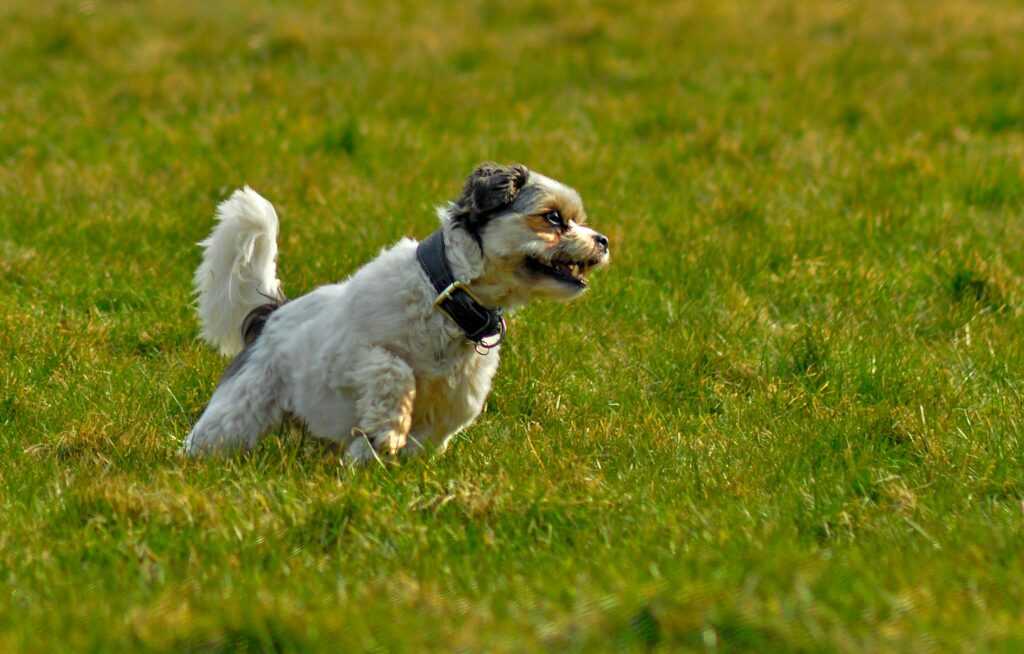You spot your dog sniffing through the yard, tail wagging and nose twitching, when suddenly they dip their head and start grazing like a backyard cow. It looks strange. Maybe even concerning. But rest easy – dogs chewing on grass isn’t as unusual as it might seem, and in most cases, there’s nothing dangerous about it.
You’re not the only one scratching your head. Vets, trainers, and dog lovers have all asked the same question: Why do dogs eat grass? The short answer is – it depends. But before we unpack the reasons, let’s first settle the nerves.
Is It Normal for Dogs to Eat Grass?
Yes, it’s completely normal – and surprisingly common. Many dogs nibble on grass as part of their daily sniff-and-explore routine. You’ll even catch wolves and wild dogs chewing on vegetation from time to time. It doesn’t always mean something is wrong. In fact, plenty of healthy, well-fed dogs nibble on lawn clippings now and then without issue.
Grass-eating falls under one of those curious canine quirks – like circling before they lie down or chasing their tail after dinner. Most of the time, it’s harmless and short-lived. The trouble only starts if your dog overdoes it or starts showing other symptoms.
Top Reasons Dogs Might Eat Grass
Dogs don’t grab a mouthful of grass for one reason. Sometimes they do it out of habit. Sometimes it’s a signal. Other times? They’re just mucking about. Let’s break down a few of the most likely causes.
1. To Soothe an Upset Stomach
You’ve probably heard this one before – “Dogs eat grass to make themselves vomit.” There’s some truth to that. Some dogs seem to seek out grass when their stomach feels off-kilter. The blades can irritate the stomach lining just enough to trigger a clean-up via vomiting.
But not all grass-nibblers throw up after. In fact, research suggests fewer than 25% actually do. So while it’s possible your dog’s trying to hit the reset button, don’t count on it being the sole explanation.
2. Out of Boredom or Anxiety
Think of grass as nature’s fidget spinner. When a dog has too much energy bottled up or feels wound tight from stress, they might chew grass simply to do something. It’s a displacement habit – a way of coping when they’re stuck, restless, or unsure.
This kind of behaviour tends to show up in under-stimulated dogs, especially those who don’t get regular walks or mental play. You might notice they chew longer or more obsessively when left alone or after a stressful event, like a vet visit or loud thunderstorm.
3. Nutrient Deficiency
Sometimes dogs munch grass because something’s missing from their bowl. While most commercial dog foods cover the basics, not all diets hit the mark for every dog. A craving for greens could point to a shortage of fibre or specific minerals their body’s quietly asking for.
Fibre plays a big role in digestion. It keeps things moving along without too much fuss. So, a dog that starts chewing grass regularly – especially if paired with loose stools or constipation – might be looking to patch up a digestive gap.
If your dog’s grazing starts to feel like a daily ritual, it might be worth checking with your vet about adjusting their diet. A little tweak to their food might clear things up faster than a bag of lawn seed.
4. Curiosity or Habit
Let’s be honest – dogs explore the world with their mouths. Shoes, socks, sticks, your favourite sunglasses. Grass just happens to be another item in the menu of curiosity. Puppies in particular nibble their way through everything in reach. And if it turns into a habit? Well, habits stick.
If the lawn nibbling doesn’t lead to gagging, vomiting, or changes in behaviour, chances are your dog’s just poking about and testing textures. Much like toddlers who put everything in their mouths, they’re collecting data one blade at a time.
5. Instinctual Behaviour
Dogs didn’t start out in backyards and living rooms. Their ancestors roamed, hunted, and scavenged – and part of that diet often included plants inside the bellies of prey animals. Over time, some of those instincts stuck. Chewing grass may simply be a leftover trait from a time when scavenging meant survival.
This behaviour shows up even in dogs that aren’t hungry. It’s coded in the background – a subtle behaviour passed down through generations. Your Moodle, Pomeranian, or Staffy might never chase a rabbit through the bush, but that wild wiring still flickers in their brain from time to time.
Should I Be Worried If My Dog Eats Grass?
Not usually. For the most part, chewing on the occasional patch of grass doesn’t raise red flags. But if your dog’s grazing starts looking more like lawn mowing, or if you spot other changes in their behaviour, it might be time to take a closer look.
Keep an eye out for signs that things are going sideways:
- Vomiting – especially if it happens every time after grass-eating
- Lethargy – a dog that chews grass and then lies around looking flat may be battling more than just boredom
- Loose stools or constipation – a digestive hiccup could be pushing them to chew
- Loss of appetite or general disinterest in food
Another thing to watch for? The grass itself. Lawns treated with chemicals like fertiliser, weedkiller, or pesticides can turn a harmless nibble into a serious problem. Toxic plants in the garden can also sneak their way into a curious mouth. Always double-check what’s growing in your yard – and what’s being sprayed nearby.
When to See a Vet
If your dog starts gulping grass like they’ve got something to prove, and especially if they’re doing it multiple times a day, bring it up with your vet. The same goes for dogs that chew and then vomit consistently – it might suggest something in their gut isn’t sitting right.
You’ll also want to book an appointment if you suspect they’ve eaten something toxic, or if they show signs of gastrointestinal blockage – things like straining without results, whining near the belly, or refusing food altogether.
And if you’re scratching your head because your dog’s eating habits have suddenly changed, even without other symptoms, it’s worth raising with your vet during a check-up. A small shift can sometimes be the first clue in a larger puzzle.
Conclusion: Know Your Dog’s Habits
A little grass chewing here and there? It’s probably just your dog being, well, a dog. Most of the time it’s harmless, temporary, and tied to curiosity more than anything else.
But as with most behaviours, the key lies in the pattern. Is it new? Is it increasing? Is it paired with other signs that something’s off? If your gut says this feels different, trust that instinct and have a chat with your vet.
And if you’re considering a new puppy or seeking advice on where to advertise puppies for sale, make sure you choose a platform that prioritises responsible breeding practices and connects you with potential owners who are ready for the commitment of a new pet.


 Veterinary Advisor & Health Expert
Anthony Brooks is the in-house Veterinary Advisor at Pet Paw Shack, offering expert advice on pet health, disease prevention, and general veterinary care. With years of experience as a licensed veterinarian, Anthony helps guide pet owners through essential topics like vaccinations, routine checkups, and emergency care. His commitment to keeping pets healthy ensures that Pet Paw Shack delivers trusted and accurate medical insights.
Veterinary Advisor & Health Expert
Anthony Brooks is the in-house Veterinary Advisor at Pet Paw Shack, offering expert advice on pet health, disease prevention, and general veterinary care. With years of experience as a licensed veterinarian, Anthony helps guide pet owners through essential topics like vaccinations, routine checkups, and emergency care. His commitment to keeping pets healthy ensures that Pet Paw Shack delivers trusted and accurate medical insights.
